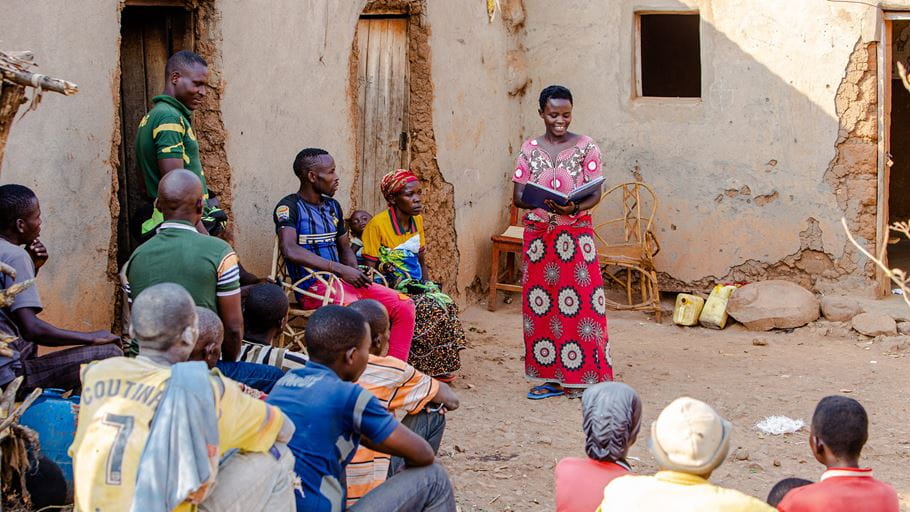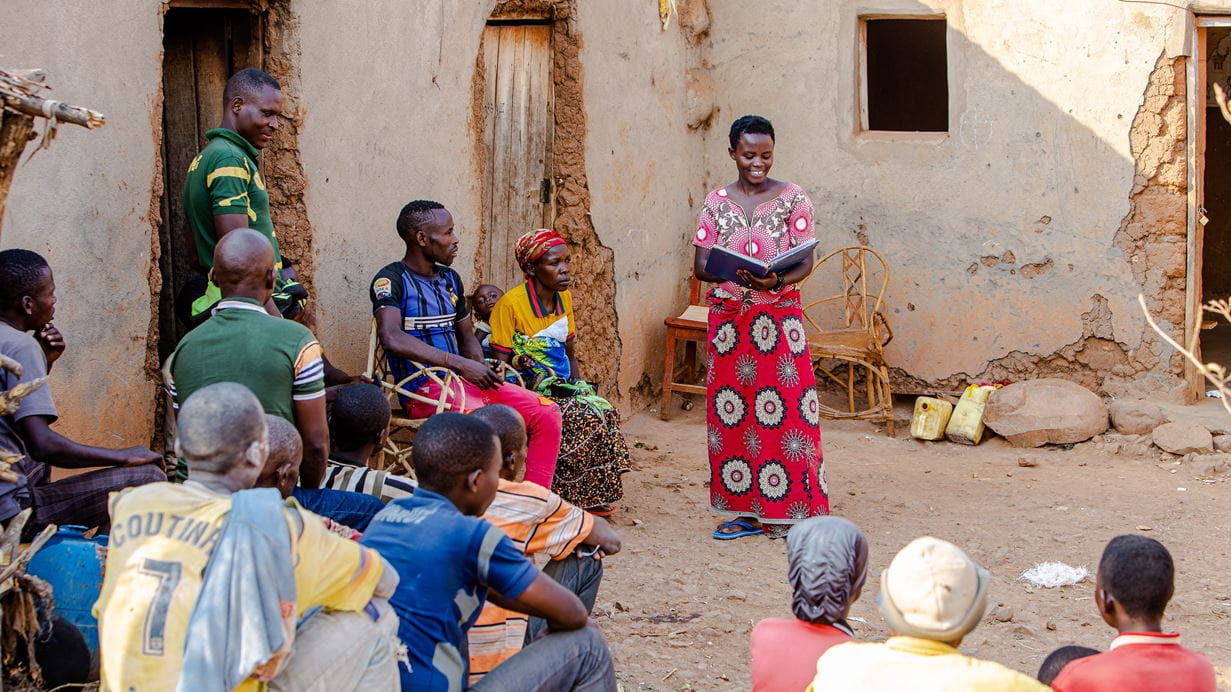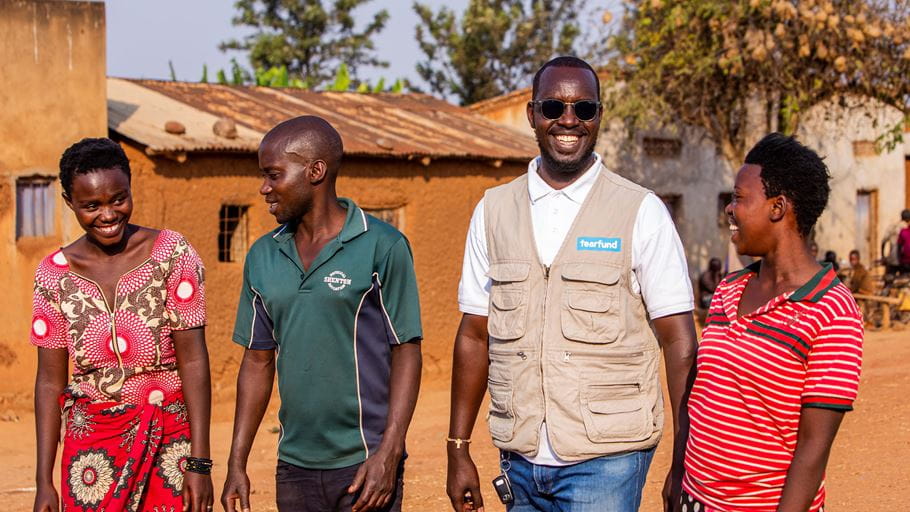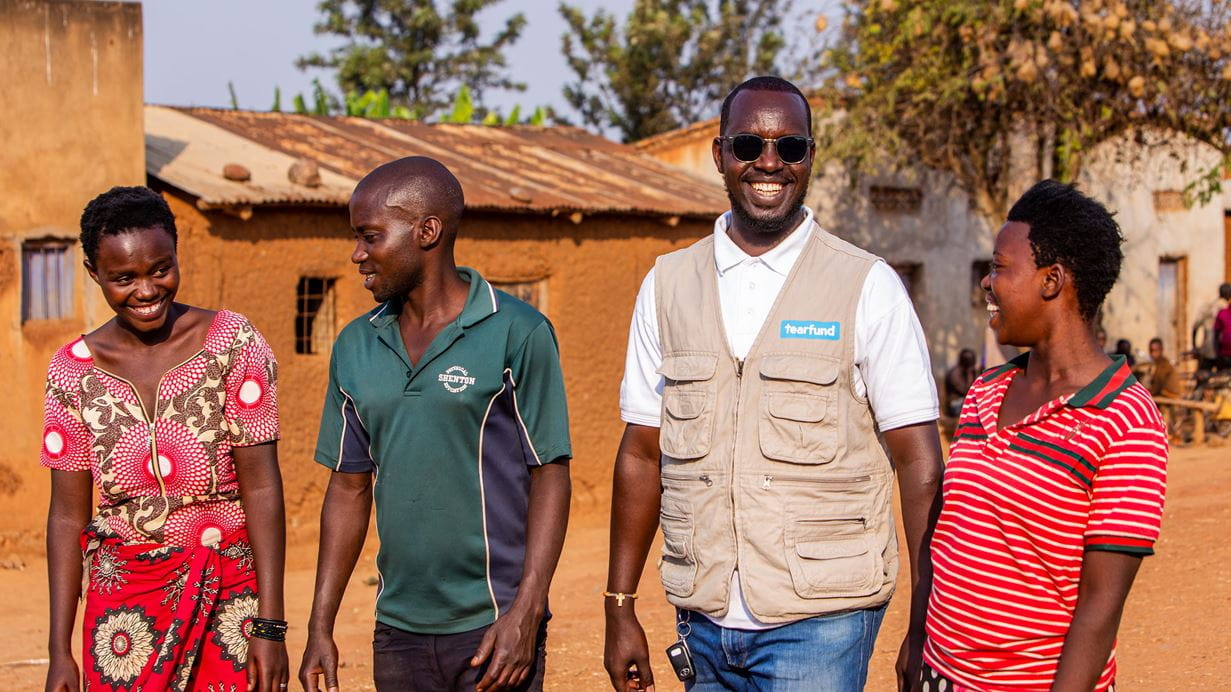Three activities to help you to pray for peace
A time such as this
‘For if you remain silent at this time, relief and deliverance for the Jews will arise from another place, but you and your father’s family will perish.’ (Esther 4:14)
We can choose to live a life of peace – to stay involved, to have a voice, to be engaged, and to make a difference in our nation and the world.
The book of Esther shows us that our prayers matter, our voices matter and our actions matter. And that God is our Deliverer.
Florence saw the problems in her community and committed to speak up and pray about them. God now uses her to be a peacemaker in her community – and lives are being changed.
Each day, ask God to highlight one relationship or situation where there is conflict that you can pray for. As you speak with God, ask him to fill you with boldness and opportunities to be able to have conversations with others on peace and resolving conflict.
Humbling yourself
‘You have heard that it was said, ‘Eye for eye, and tooth for tooth. But I tell you, do not resist an evil person. If anyone slaps you on the right cheek, turn to them the other cheek also.’ (Matthew 5:38-39)
‘The lessons we received… taught us how to solve conflicts in the neighbourhood,’ shares Florence.
The lessons include biblical teachings and practical examples – and it was through these that Florence was inspired by teaching in the gospel of Matthew on turning the other cheek and how humbling ourselves can help to resolve conflict.
Humbling ourselves allows us to see the other person's point of view. It gives us time to assess our emotions so we can communicate well with each other. It also gives God space within us to move; to change us or our thinking on an issue or person. If we are full of ourselves, we can miss out on what God is wanting to communicate to us.
Before you begin praying for a situation – or before conversations with others about conflict, ask God to humble you and to make space to hear his voice.
Leading with prayer
‘[The book of] John teaches me to love praying,’ says Florence.
‘For me, I pray for us to live in peace, to understand each other, and to love praying.
‘The role religions have in the neighbourhood is that they teach us love.
‘To love praying, to love one another, we live together in the neighbourhood, so that we love each other, trusting each other, because when you hate each other, conflicts usually arise in homes.
‘When you notice that someone is facing a challenge, you take an initiative to pray for the person to see if the problems can be solved.’
If you notice a conflict arising or if someone is facing a difficulty, step back and pray for the person and situation. If you’re uncertain about what to say, pray simply for God’s peace and love and for people involved to see clearly how to resolve the situation.
Pray with us
‘I would like to pray for our country and our neighbourhood,’ says Florence. ‘I want to pray to God to give us peace in our country, to prevent excessive sunshine here in Gatete [so that crops won’t wilt], to give us rain and prevent conflicts in our neighbourhood.’
Florence shared with us this final prayer on how we can support her by praying for peace in Burundi:
In the name of the Father and the Son and Holy Spirit,
Lord Almighty God, it is you who clearly sees this country of ours, Burundi. It is you who decorated her with good things, Lord Jesus. Give us peace, let us help each other out. Give us rain here in Gatete. At home help us and protect us from conflicts. Give us peace – all of us living together in peace – so that Lord Jesus Christ we can see your kingdom.
We ask for this through our Lord Jesus Christ.
Amen.














